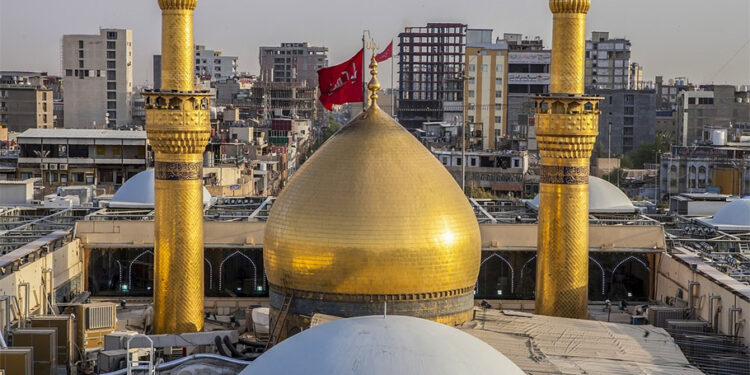It was the Battle of Karbala which is counted as one of the significant events in Islam after the death of Prophet Mohammad, held in 680 AD or 10 Muharram 61 AH in Karbala, Iraq. This battle was characterized by the killing of Imam Hussain ibn Ali A.S., grandson of the prophet Muhammad (Peace Be Upon Him), and his little company. Hence, it could be asserted that political and moral aspects encountered in the Battle of Karbala have not lost their relevance to this day. These are the lessons that this article discusses while stressing their applicability in the current society.
Historical Context
Historically speaking, the Battle of Karbala which happened in the year 61 AH/680 CE took place in the context of political instability in the initial stages of the Islamic civilization. In this period, various controversies arose concerning leadership to form groups that were differently led. The successor of Muawiya, to the Umayyad dynasty was Yazid ibn Muawiya who continued the process of centralization of power and acted mostly oppressively. Imam Hussain A.S., in order not to legalize Yazid tyranny, headed the revolution against oppression and corrupt authority, and became the sanctity of justice, honor, and fairness.
Political Lessons
Stand Against Oppression:
- Imam Hussain’s Stand: Imam Hussain A.S. was not only alone from his family and friends but also outnumbered and conscious that the outcome would be disastrous however he still decided to oppose the unjust rule of Yazed. Thus, his position emphasizes the need to stand against the authorities’ oppressiveness and fight for justice despite the circumstances.
- Contemporary Relevance: In the modern world political repressive and authoritarian tendencies are in some way and in some measure present. The event of Karbala invites and urges the person as well as the nation to fight against such power and stand for justice and human rights.
Moral Leadership Over Political Gain:
- Ethical Leadership: It is for this reason that, Imam Hussain A.S. refused to pay allegiance to Yazid for he had made a stand that was purely based on ethical leadership. He resolved to ethical principles as opposed to political expediency a quality that was dear in leaders.
- Modern Application: Unfortunately, today’s world requires leaders who would consider ethics more important than self- or party-interested. The Karbala story disseminates the appropriate criteria for choosing and backing the right leaders those who propagate such virtues.
Sacrifice for the Greater Good:
- Imam Hussain’s Sacrifice: The tragic story of Imam Hussain A.S. and his companions is inspiring as they willingly gave up their lives for their principles, and for the liberty of people.
- Contemporary Example: This lesson is rather timely concerning the current global phenomena like climate change or social and human rights issues that people meet today, challenging people to come up with a barbarous change and cooperation.
Moral Lessons
Courage and Resilience:
- Facing Adversity: Hussain’s sufferings and empowering the crew, his companions, to fight till their last breath are the true proofs of grief and great power and humankind.
- Personal Growth: At the personal level, this instills the principle of doing all one can in defending one’s self and or overcoming hurdles when they arise.
Compassion and Humanity:
- Humanitarian Values: Nonetheless, the ordeals that fell upon Imam Hussain’s camp were cruel, and yet the gesture was reciprocated with water for the enemy troops’ thirst.
- Universal Morality: Amazingly this act of charity cuts across the divides of religions and cultures of the people who are involved in the conflict.
Justice and Integrity:
- Standing for Justice: Thus, the stand of Imam Hussain A.S. in my view, was one of the principles and morality of fighting against injustice and corruption.
- Ethical Conduct: In today’s world, this lesson brings the awareness of ethical behaviors and doing the right thing against any injustice in all aspects.
Conclusion
Hence, although it is set in the chronological background of early Islam, it provides political and moral messages for contemporary society. Thus, people can build their characters and form societies based on the example of the righteous Imam Hussain’s resistance against oppression, commitment to moral values, courage, compassion, and justice. The social values of the world today are full of corruption, injustice, and various other vices, and the series of events that occurred in Karbala presents the people with a ray of hope and direction to lead a moral life. Karbala is a sign that the struggle for truth and justice is the key to a happy life and the struggle to which entire humanity owes.
























